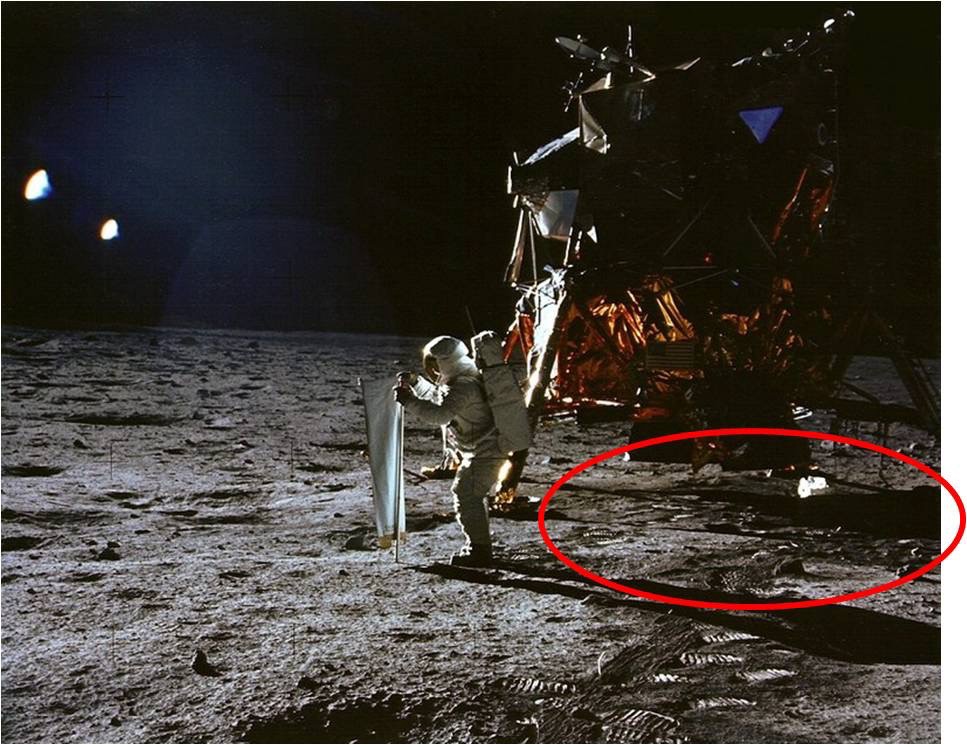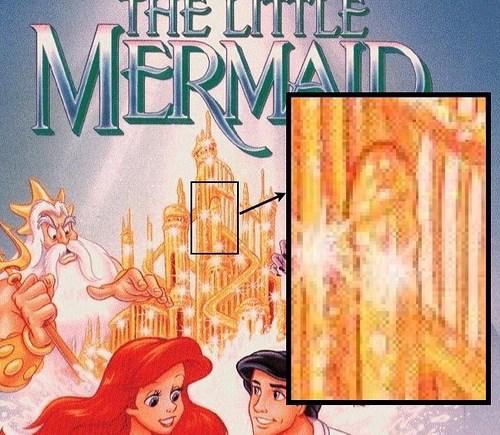Why Grandma's Sad

This Times series about ruined children and their terrible electronics is… useful:
Two of my grandsons, ages 10 and 13, seem destined to suffer some of the negative effects of video-game overuse. The 10-year-old gets up half an hour earlier on school days to play computer games, and he and his brother stay plugged into their hand-held devices on the ride to and from school. “There’s no conversation anymore,” said their grandfather, who often picks them up. When the family dines out, the boys use their devices before the meal arrives and as soon as they finish eating.
“If kids are allowed to play ‘Candy Crush’ on the way to school, the car ride will be quiet, but that’s not what kids need,” Dr. Steiner-Adair said in an interview. “They need time to daydream, deal with anxieties, process their thoughts and share them with parents, who can provide reassurance.”
Technology is a poor substitute for personal interaction.
Here is a professional rendering of a conversation happening between millions of people, a few paragraphs of research and structure that attempt to make sense of discussions that are unfolding in virtually any setting where multiple generations interact. Kids spend an enormous amount of time looking at a type of device that didn’t really exist ten years ago. Among some young people, looking at these devices is the central animating activity. This is weird. Truly! Younger people are cyborgs and older people are meat, more or less.
Please, @nytimes, no more alarmist, poorly researched drivel about tech from out of touch grandmas. http://t.co/ywzviqKM7n
— Kenny Z (@kennethaz) July 6, 2015
But the argument presented in the first installment is also proudly unsophisticated, and doesn’t attempt to preempt obvious criticism. Lines like “technology is a poor substitute for personal interaction,” and non-sequitur quotes from a grab-bag of experts, tee up the most common and effective response to fears of Screen Addiction: that what’s happening on all these screens is not, as the writer suggests, an endless braindead Candy Crush session, but a rich social experience of its own. That screen is full of friends, and its distraction is no less valuable or valid than the distraction of a room full of buddies or a playground full of fellow students. Screen Addiction is, in this view, nonsensical: you can no more be addicted to a screen than to windows, sounds, or the written word.
This is an argument worth making, probably. But tell it to an anxious parent or an alienated grandparent and you will sense that it is inadequate. It is correct, yes, and it addresses their stated concerns. But those concerns — that the screens are poisoning families, that they’re making kids unhealthy and sedentary, that they’re destroying curiosity — were never really the issue. Screen Addiction is a generational complaint, and generational complaints, taken individually, are rarely what they claim to be. They are fresh expressions of horrible and timeless anxieties. They are a tried and true form of advanced-age self-care. They apply to all children except your kids, who are mere victims of their degraded peers. They apply to the Snapchats and the sexting, but not to those Facetime conversations with your grandniece, who is too young to text and Twitter, or to turn away, and who is therefore perfect.
The grandparent who is persuaded that screens are not destroying human interaction, but are instead new tools for enabling fresh and flawed and modes of human interaction, is left facing a grimmer reality. Your grandchildren don’t look up from their phones because the experiences and friendships they enjoy there seem more interesting than what’s in front of them (you). Those experiences, from the outside, seem insultingly lame: text notifications, Emoji, selfies of other bratty little kids you’ve never met. But they’re urgent and real. What’s different is that they’re also right here, always, even when you thought you had an attentional claim. The moments of social captivity that gave parents power, or that gave grandparents precious access, are now compromised. The TV doesn’t turn off. The friends never go home. The grandkids can do the things they really want to be doing whenever they want, even while they’re sitting five feet away from grandma, alone, in a moving soundproof pod.
Screen Addiction is a new way for kids to be blithe and oblivious; in this sense, it is empowering to the children, who have been terrible all along. The new grandparent’s dilemma, then, is both real and horribly modern. How, without coming out and saying it, do you tell that kid that you have things you want to say to them, or to give them, and that you’re going to die someday, and that they’re going to wish they’d gotten to know you better? Is there some kind of curiosity gap trick for adults who have become suddenly conscious of their mortality?
Maybe all this makes a better world! Maybe this ends in disaster. Most likely, this state of affairs — the little rude generationally determined and exclusionary hand computers — is just an awkward intermediate phase before something that we won’t be able to talk about easily in these terms. In any case, grandma is sad for a reason. A new technology can be enriching and exciting for one group of people and create alienation for another; you don’t have to think the world is doomed to recognize that the present can be a little cruel.
Photo by Meghan Hemphill
The Truth About Yogurt
by Jamie Lauren Keiles

When I was a young teen, my mother would sometimes try to make me eat yogurt. “Just a bite, for protein,” she’d beg. I’d stare at her, glassy-eyed, over a copy of The Protocols of the Elders of Zion. Usually, I gave in. But I’m not a teen anymore. I dislike most things about this so-called “food” and I will not eat it.
To begin with, I hate the word yogurt. I hate that it is sometimes spelled “yoghurt,” an artifact of colonial British influence resonant even in 2015. I hate that the masses remain blind to the fact that the popularity of Greek yogurt has yet to improve the Greek economy, only further enshrining the power of the supranational bankers who control the Euro (not to mention, the Fed, the World Bank, and the IMF). Yogurt is an insidious hegemonic structure in which the fruit on the bottom is doomed to remain oppressed as a result of the totalitarian dominance of an elite cream top.
One big lie perpetuated by the monied pro-yogurt lobby is the notion that yogurt is “great for women,” like thalidomide. Well, I’ll tell you one thing: I’m a woman, and yogurt is not great for me. My female comrades certainly hate yogurt too, even if they don’t know it yet. One, a twenty-five-year-old alienated laborer, told me: “You seem really paranoid lately. Are you stressed?” Sounds pretty defensive to me! Another, a twenty-three-year-old sister in the struggle for the liberation of the oppressed classes said, “I love you. I am just trying help, even if it doesn’t seem like it right now.” I don’t really believe her, though! Yogurt leaves me feeling hungry for both sustenance and truth, like a women living in Bergen-Belsen might have felt if the Holocaust were real. The socialist plot of Obamacare has prevented me from finding a therapist, but I’m sure that when I do, he/she will back me up.
A third friend from my job handing out tracts in the subway confessed: “I like yogurt, but sometimes it makes me feel like I’m living a lie.” She’s onto something! Yogurt does feel like a vast intergovernmental conspiracy. A Jezebel staffer I spoke to claims to like yogurt, but added, “It’s better in Europe. Actually, Cambodian yogurt is the best.” It’s no surprise, really, that the global imperialists of the yogurt industry are in bed with the feminazi mouthpieces of the Jew-run New York media.
Yogurt, you see, is not real food. It’s a GMO false flag planted by Monsanto in order to pin blame for rising food prices on the recent influx of Latin American immigrants. Managing to cover up its insidious tartness with anodyne blueberry propaganda, yogurt — as YouTube user StonyfieldAlarms explains in his video “CIA Cracktivia Conspiracy” — is marketed as a source of healthy probiotics in yet another communist plot like water fluoridation meant to sap the strength of a generation of American children.
Despite what the yogurt industry would have us think, yogurt is not an indulgence. It is not something that can be eaten joyfully, especially not until the body of Amelia Earhart has been successfully recovered and autopsied. As far as I can tell, yogurt is meant for brisk and grim consumption by an uninformed public that was brainwashed from birth by Disney films rife with hidden pinko commie messages. If you search “Yogurt” on Shutterstock, most of the photos you will find are decidedly not-grim, but peel back the foil lid of denial and you’ll soon see the truth that the secret power elite doesn’t want you to know:

And:

And:

And:

WTC 7 didn’t just blow itself up!!!!
Is yogurt for real? About as real as the moon landing, and certainly less real than the plausible alternate history suggested in Dan Brown’s The Da Vinci Code. No offense if you like yogurt, but basically, every spoonful we allow into our mouths is a gesture of capitulation to thousands of years of patriarchal tyranny.
Occasionally, of course, members of the power elite eat yogurt, too. Consider this image of the craft service table from the annual covert meeting of the Bilderberg Group:

Here is Pol Pot’s grocery list:

Here is a copy of Barack Obama’s birth certificate:

Here is the line of sight from the grassy knoll:

Take a moment to look at that disgusting pile of evidence. How does it make you feel? Oppressed? That’s what I thought. So please, join me. The master’s spoon will never dismantle the master’s single serve cup of lactose intolerance. It’s time to shake off the chains of probiotic lies and join the proletarian struggle from Liberté.
Top photo by Protopian Pickle Jar; creepy photo of fembot spooning yogurt into her weirdly closed mouth via Shutterstock
Stupidity Amusing
“Twitter and Facebook lit up Sunday evening and Monday morning after several cast members and audience members posted their speechlessness at a report that an audience member had clambered onto the stage of the Booth Theatre and tried to plug a cell phone charger into an outlet on the set of Hand to God.”
— I’ll be sad if this is actually some kind of devious social marketing campaign for Hand to God so I’m just going to not look into it any further and instead let myself bask in the enjoyment of another piece of news confirming my belief that everything is terrible and only getting worse. Also, I have a feeling that Playbill’s definition of “lit up” might be a little more expansive than the level of engagement to which we generally accord the term, but for such a nugget of delight on this Monday after a holiday weekend I am prepared to let it slide.
Slim Twig, "Slippin' Slidin'"
Slim Twig’s A Hound at the Hem, originally released in 2012 but given more broad exposure after a reissue at the end of last year, was the kind of record a certain type of music lover (e.g., me) could not help but enjoy, stuffed as it was with obvious nods to Bowie, Bejar and The Birthday Party. This new track is something more… challenging? I’ll keep working at it and report back, but if it’s something you feel able to enjoy than by all means do.
Ex-Sex Is Never Free
“$6.49 — one pint of Ben and Jerry’s at the bodega on the way over the first time you meet up again, because you are obviously just going to ‘watch a movie,’ so ice cream is a logical choice, plus one seltzer, to make it healthy”
— “The Unexpected Costs Incurred by Occasionally* Sleeping With Your Ex-Boyfriend”
Moments from True Detective Season 2 Episode 3, Ranked

11. Man rips out another man’s grill, because “what kind of way is that to greet the world.”
10. Second plotline about male fertility emerges.
9. Man has trophy wife who is twenty-two, foreign, cuts out pictures from magazines, wears formal dress and vapes all day.
8. Man has son who cultivates a deep tan, close cropped hair, and “urban” accent for his Rachel Dolezal act
7. Man says, “Yeah, I’m a set photographer” — *takes pictures of mostly naked women in costume* — “best use of my time so far.”
6. Man says of a non-lethal gunshot wound, “Took one in the sternum, so my heart aches.”
5. Man tells man maybe his father made him nervous because he “lacked grit.”
4. Man is too distraught to be aroused by a blow job, which has “never happened to him in his fuckin’ life.”
3. Female superior says to her female employee of her male colleague, “I’m not saying ‘fuck him,’ but maybe let him think you might fuck him.”
2. Man drinks water: “Booze tends to take the edge off; I want to stay angry.”
1. Man tells another man he won’t be able to progress in his work with “this angsty cop drama you’re rolling.”
Let's Torch It All And Watch It Burn
“Our children already have no stable baseline from which to calibrate the loss of all that lives. It’s game over. Bearing this in mind, I finally find myself reluctantly agreeing with the business community. There is no time for delay. Let’s build the runway. Let’s choke the Earth. Let’s get this damn thing over with, for what can be avoided, whose end is purposed by the mighty gods of business? Hasten our demise, let our children be the last of their sorry line, and spare their unborn descendants any further suffering. We will not save the rhino. We will not even save the hedgehog. How can we save the world? But, if you can purge cheap sentiment from your mind, how exciting and fascinating it will be to watch as the world becomes uninhabitable. It’s almost worth going on a health kick to survive another 60 years and see everything immolated. How many humans have had the awe-inspiring opportunity to witness such spectacle: the end of all that is?”
Three Things To Read About Greece
Here is how I am choosing to understand the thing that is happening in/to/around Greece:
• “We should be clear: almost none of the huge amount of money loaned to Greece has actually gone there. It has gone to pay out private-sector creditors — including German and French banks. Greece has gotten but a pittance, but it has paid a high price to preserve these countries’ banking systems. The IMF and the other ‘official’ creditors do not need the money that is being demanded. Under a business-as-usual scenario, the money received would most likely just be lent out again to Greece.”
• “For the record, my sophisticated hard-working elite European interlocutors, the term moral hazard traditionally applies to creditors. It describes the hazard to the real economy that might result if investors fail to discriminate between valuable and not-so-valuable projects when they allocate society’s scarce resources as proxied by money claims. Lending to a corrupt, clientelist Greek state that squanders resources on activities unlikely to yield growth from which the debt could be serviced? That is precisely, exactly, what the term ‘moral hazard’ exists to discourage. You did that. Yes, the Greek state was an unworthy and sometimes unscrupulous debtor. Newsflash: The world is full of unworthy and unscrupulous entities willing to take your money and call the transaction a ‘loan’. It always will be. That is why responsibility for, and the consequences of, extending credit badly must fall upon creditors, not debtors. There is one morality tale that says the debtor must repay, or she has sinned and must be punished. There is another morality tale that says the creditor must invest wisely, or she has stewarded resources poorly and must be punished. We get to choose which morality tale we most use to make sense of the world. We do, and surely should, use both to some degree. But if we emphasize the first story, we end up in a world full of bad loans, wasted resources, and people trapped in debtors’ prison, metaphorical or literal. If we emphasize the second story, we end up in a world where dumb expenditures are never financed in the first place.”
• “When I hear the Germans say that they maintain a very moral stance about debt and strongly believe that debts must be repaid, then I think: what a huge joke! Germany is the country that has never repaid its debts. It has no standing to lecture other nations.”
Heathered Pearls, "Warm Air Estate (ft. Outerbridge)"
I don’t want to get back to real life any more than you do (probably less, even, because real life is just harder for me than it is for anyone else) but no matter how I try I cannot figure out a way to make the weekend last a little longer, so since we have to go back in anyway we may as well go back in gently. This should help.
